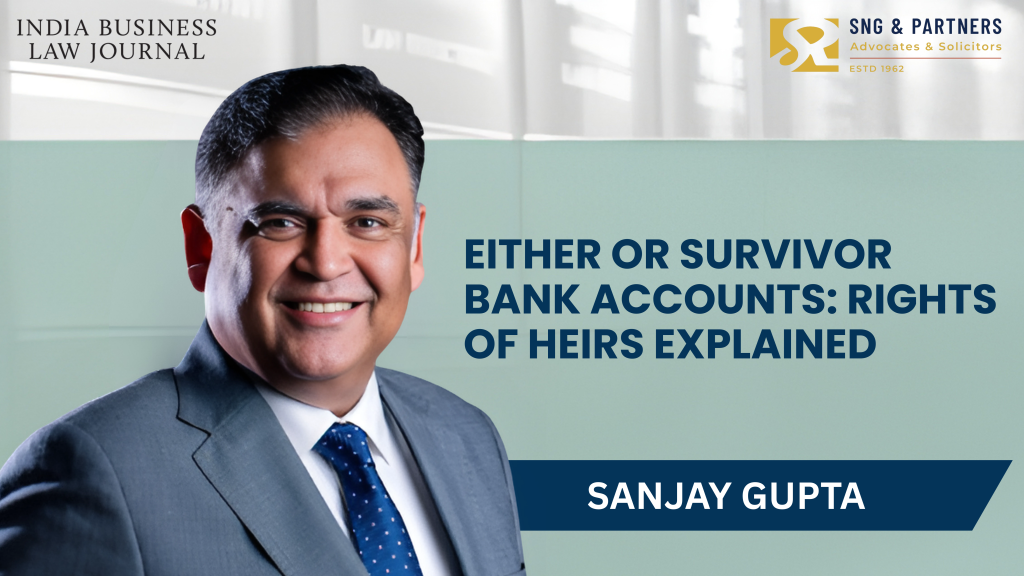A guarantee is defined in section 126 of the Indian Contract Act, 1872 as a contract to perform or discharge the liability of a third person in case of default. In lending transactions, a guarantee is issued by a guarantor in favour of a lender or creditor to discharge the repayment obligation of a borrower or principal debtor, should the principal debtor fail to discharge its obligations towards the lender or creditor.
There are essential issues parties have to consider regarding liability under the Central Goods and Service Tax Act, 2017 (CGST Act) and its associated rules when the guarantor and principal debtor are related persons. Issuing a guarantee is considered to be a supply of service under the CGST Act. Under the provisions of section 7 and paragraph 2 of schedule I to the CGST Act, a supply of goods and services between related persons is taxable, whether made with or without consideration. A guarantee, where the principal debtor and guarantor are related persons, is also a supply of service liable to goods and service tax (GST). This was confirmed by the Central Bureau of Indirect Taxes and Customs (CBIC) in its circular of 27 October 2023.
The term related persons is defined in the explanation of section 15 of the CGST Act. Persons shall be deemed to be related persons if they are officers or directors of one another’s business; if they are legally recognised business partners or are employer and employee; if any person, directly or indirectly, own, control or holds 25% or more of the outstanding voting stock or shares of both of them; if one of them directly or indirectly controls the other; if a third person directly or indirectly controls both of them, or if they are members of the same family.
Under section 15(1) of the CGST act, the transactional value will be the value of the supply where the provider and recipient of goods or services are not related persons and the price is the sole consideration for the supply. The price will be the commission charged by the guarantor for issuing the guarantee. Where the supply is made to related persons, the value of the supply is to be determined in accordance with the Central Goods and Service Tax Rules, 2017 (CGST rules).
Rule 28(1) of the CGST rules sets out how the value of supply is to be determined when the supplier and recipient are related persons. The CBIC introduced rule 28(2) through a notification published on 26 October 2023 to provide clarity on valuing a supply of guarantee. That rule, as amended by a July 2024 notification, provides that the value of such supply to a related person in India will be the higher of either 1% of the guarantee every year or the actual consideration, whichever is higher. This applies to all guarantees given since the introduction of rule 28(2). All guarantees before then are valued in the way set out in rule 28(1) of the CGST rules.
Where the guarantor and the principal debtor are in India, the guarantor is liable to pay the GST. If the guarantor is situated outside India and the principal debtor is in India, the GST will be payable on a reverse charges basis by the principal debtor. Where the guarantor is in India, but the principal debtor is outside India, the guarantee will be considered as an export of services and will not be subject to GST.
It is important to note that the Reserve Bank of India, through its various circulars, has forbidden the directors and other managerial personnel of a company from accepting consideration as an incentive for providing a guarantee for the benefit of the company. In parallel, the CBIC through its circular of 27 October 2023, has made it clear that as no consideration can be paid for a guarantee issued by the director or other managerial personnel for the benefit of the company, the open market value of such a transaction or supply will be treated as zero. Therefore, the taxable value of such supply will also be treated as zero.
The result is that when a director or key managerial person issues a guarantee in favour of the company, no tax is payable. However, when in exceptional circumstances, the existing directors or other managerial personnel of the principal debtor receive remuneration or consideration, directly or indirectly, for the issue of a guarantee, the taxable value of such supply of service will be the remuneration or consideration provided to such guarantor by the principal debtor, directly or indirectly. Accordingly, GST will be payable on remuneration or consideration provided to such guarantor.
Anju Gandhi is a partner and head of banking and finance, Hetal Sheth is an associate partner and Manan Pant is a senior associate at SNG & Partners.



